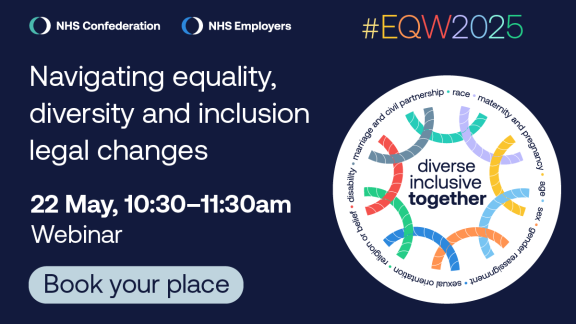NHS Workforce Race Equality Standard

Since 2015 all NHS organisations have been required to demonstrate how they are addressing race equality issues in a range of staffing areas through the Workforce Race Equality Standard (WRES).
NHS Employers works closely with NHS England and employers to ensure that the WRES metrics and the associated guidance are clear and comprehensive and that trusts understand their duties under the WRES.
WRES 2023 report findings
The WRES 2023 Data Analysis Report for NHS trusts published in March 2024, highlights the experience of black and minority ethnic (BME) people working in the NHS. It provides an overview of the data on all nine WRES indicators and where possible, comparison against data from previous years.
- Key findings indicated an additional 144,750 BME staff are now in the service compared to 2018. As of March 2023, this represents 26.4 per cent of the workforce across NHS trusts.
- Although the percentage of representation of BME staff at very senior manager (VSM) level has increased from 10.3 per cent to 11.2 per cent since last year, the largest representation of BME staff is at Agenda for Change (AfC) band 5 at 38.5 per cent. This indicates that BME staff are finding it harder to progress than their white counterparts and at 76 per cent of NHS trusts, white applicants were significantly more likely than BME applicants to be appointed from shortlisting.
- For staff from a black background only 39 per cent believe their trust provides equal opportunities for career progression or promotion.
- 27.5 per cent of BME staff reported experiencing harassment, bullying or abuse from staff in the last 12 months, compared to 21.7 for white staff. This shows there is still a long way to go for NHS employers to facilitate true workplace equality for BME staff.
If you have any queries, or require any clarification please contact the WRES team at england.WRES@nhs.net.



